-
About
- About Listly
- Community & Support
- Howto
- Chrome Extension
- Bookmarklet
- WordPress Plugin
- Listly Premium
- Privacy
- Terms
- DMCA Copyright
- © 2010-2025 Boomy Labs


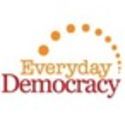 Everyday Democracy
Everyday Democracy
Listly by Everyday Democracy
It is hoped that this resource guide will be helpful to elementary and secondary teachers in planning effective inquiry lessons to help their students gain a better understanding of and a genuine interest in citizenship and government.

The American Bar Association provides a wealth of information. Their Division for Public Education provides information about the 2016 Law Day theme, “Miranda: More Than Words”. Also included is information about the 2016 Summer Teachers Institute – “Federal Trials and Great Debates in U. S. History”. The ABA is also sponsoring a series of programs in 13 cities around the country on the topic of “Civility and Free Expression in a Constitutional Democracy – a National Dialogue” to explore the balance between norms of civility and the laws of free expression within our society and system of government.
The site also includes links to lesson plans organized by grade level and topic, including lessons on topics such as antitrust law, environment and law, intellectual property and international issues.
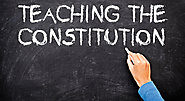
The Annenberg Classroom website provides “Resources for Excellent Civic Education”. The “Knowledge” section of the site includes videos, games and a play giving examples of information about the Constitution in action. The Annenberg Guide to the U. S. Constitution divides the document into its Articles and Sections followed by the document’s text and an explanation for each section.
The site also includes a number of lesson plans that highlight case studies of the Constitution in action. For example, there are two lessons related to Japanese internment during WWII: “The Importance of the Japanese Internment Cases” including a conversation with Supreme Court Justices and “When National Security Trumps Individual Rights”. Additionally the site includes a section of “Critical Thinking Lesson Plans” using a variety of topics to spark student interest. The “News” section highlights current events stories that relate to Constitutional issues.

The Ashbrook Center at Ashland University provides training to teachers of American history and government. Ashbrook’s TeachingAmericanHistory.org website offers teachers, at no cost, an extensive and growing library of primary source documents (currently near 2,500 documents) related to American history and government. The website also contains special exhibits on the Constitutional Convention, Ratification Debates, and Bill of Rights, designed in conjunction with a leading scholar, to assist teachers in teaching these materials in a way that interests and engages their students. Teachers can also learn about and register for the free professional development opportunities Ashbrook offers.
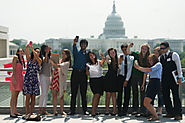
The Bill of Rights Institute provides very useful information and materials for teachers and students. The site includes free lesson plans on a wide variety of topics related to the Bill of Rights. Also, the eLesson Newsletter, sent via email to teachers who register, includes historical content, connections to real life, classroom activities and discussion questions. Professional development opportunities for teachers such as Constitutional Seminars, Constitution Day and Founders Fellowship are explained.
In addition, the site includes information on student programs such as “Think the Vote”, “Constitution Connection” and “We the Students Essay Contest”.

The Campaign for the Civic Mission of Schools, a coalition of forty organizations, has as its goal the improvement of civics education in schools. One resource, Civic Learning Online, provides links to other organizations that feature lesson plans and practices for all grade levels. The site also provides access to research study results focused on civics education and civic engagement.

The Center for Civic Education, is a nonprofit, nonpartisan educational corporation dedicated to fostering the development of informed, responsible participation in civic life by citizens committed to the values and principles fundamental to American constitutional democracy. The Center specializes in civic/citizenship education, and international education exchange programs for developing democracies.

The Civics Renewal Network allows teachers to search by topic and grade level for free teaching materials from their many partner organizations. Teachers can create a free account allowing them to bookmark materials to their account for future account.
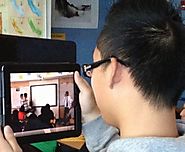
Civic Engagement Research Group conducts research focused on understanding the nature of youth civic engagement, the impact of civic learning opportunities and digital media participation. The site includes a series of videos highlighting youth engagement, information on CERG’s publications, and a series of Connected Learning webinars exploring ways to support youth engagement in public life. Also included is a press release of a very interesting Education Week article titled “Why Are We Teaching Democracy Like A Game Show?” that questions the wisdom of requiring all students to pass the U.S. Citizenship Test as a graduation requirement.

CNN Politics is the website of CNN which provides up to the minute information and video clips of political news. In addition, a number of CNN videos are available for classroom use on current issues.

The Connecticut Network has developed three excellent sets of videos that provide valuable information for all citizens, but may be of particular use to students who may have limited experience interacting with their elected officials. These may be especially useful to students “taking informed action” as the result of an inquiry project or lesson.

Developed by the Comparative Constitutions Project, the website contains the constitution of nearly every independent state in the world as of September 2013. Teachers may search by country and topic. The website is free and provides information for the study of comparative governments for use with middle school or high school students. This site may be particularly useful to teacher of grades 6 and 7 as well as high school world history teachers.

The Constitutional Rights Foundation provides a variety of programs and teaching materials for educators. Lessons include topics related to black history month, the Bill of Rights and Common Core skill related lessons.
In addition, the site provides useful information about civics related programs for students including The Civic Action Project, Courtroom to Classroom, and the Mock Trial competitions. The site links to companion sites such as Educating About Immigration; the Civic Action Project; Judges, Courts and the Law and a CFR Blog for discussion and information for all social studies educators.

C-Span Classroom provides a wealth of free primary source material for social studies teachers. This site includes a variety of timely videos about recent events and an American History TV program for classroom use.
A Classroom Deliberations program, including a series of video clips and background information, is designed to help students examine different points of view and includes a variety of information to engage students in informed debate on a topic. The site also provides access to a number of websites related to American history and government. To access the teacher lesson plans, On This Day in History and Constitution Clips, teachers must register and create a user name and password.
In addition, C-Span offers two teacher workshops each summer to help 6-12 grade teachers learn to effectively integrate C-Span’s online resources into their classes.
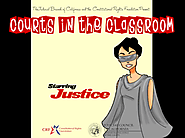
Courts in the Classroom is a product of the Judicial Branch of California and the Constitutional Rights Foundation. The site includes a section titled “Big Ideas” that provides information on topics such as privacy, censorship and due process; a section titled “The Third Branch” including information on courts and judges; and a section titled “Landmark Cases” related to the amendments. The “Teachers” section includes lesson plans on the Constitution.

C3 Teachers is an organization designed to promote inquiry teaching in social studies. The College, Career and Civic Life (C3) Framework, a national social studies framework, guided the development of the Connecticut Social Studies Frameworks.
The C3 Teachers website includes 15 civics related inquiries available to teachers. Topics include: The First Amendment, Political Parties, Voting, The Constitution, Industrialization, The Great Compromise, The Declaration of Independence, Government and Citizens, Civic Ideals and Practice, Global Citizens, The President, and Civic Ideals and Rules. Inquiries are available for students in grades K – 12 with more being developed.
In addition, the website provides information on the Inquiry Design Model for teaching.

The Dirksen Congressional Center is a non-partisan, not-for-profit foundation with the mission of helping people better understand the U. S. Congress, its people, its processes and the public policies it produces. The website seeks to promote civic engagement by providing current and historical information about Congressional activities, the legislative process, and lawmakers’ duties.
There is an interactive Congressional timeline and an extensive collection of legislative related political cartoons, some with lesson plans. The political cartoons would offer teachers excellent primary source material to develop inquiry lessons for their classrooms. Congress for Kids provides information useful to elementary school teachers in planning civics and citizenship related lessons.

Everyday Democracy is an organization that is focused on helping communities talk and work together to create communities that work for everyone. The organization works directly with local communities across the U. S. on issues such as racial equality, poverty reduction education reform and building strong neighborhoods providing advice, training and how-to resources. The website includes lessons for civics teachers as well as a resource list of organizations that will be helpful to educators teaching civics.

FactCheck.org will be a very useful resource for any teacher of civics and government or current events. The site examines the content of speeches and interviews of elected officials and candidates to determine their degree of accuracy. Examples of articles include “Trump Gets Refugee Numbers Wrong”, “Cruz Misquotes Clapper on Refugees” and “Clinton and the Benghazi Reports”.
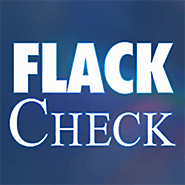
FlackCheck.org is the political literacy companion site to FactCheck.org. This site provides resources to help students recognize flaws in arguments in general and political ads in particular. This will be a very useful tool to any teacher planning lessons about upcoming elections.

Joint Florida Center for Citizenship is designed to make civics instruction an essential part of teacher education at Florida’s colleges and universities and help teachers already in the classroom enhance their civics teaching skills and methods. The site includes materials for students in elementary, middle and high school.
The high school segment, A Conversation with Congress, is a series of video discussions, each on a specific topic, with a moderator and a former Republican and Democratic member of Congress. The middle school and elementary school sections include a number of lessons complete with materials. This material may be very helpful to teachers at all grade levels.
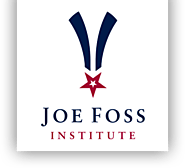
The Joe Foss Institute is an educational non-profit organization to battle civics illiteracy and close the civics education gap. They provide programs for schools, youth organizations and schools to prepare students for a life of active engaged citizenship.
One goal of the Institute is to have every state pass a law requiring every high school student to pass the test given to anyone becoming a naturalized citizen. Their education programs aim to teach students about the roots of democracy.

The Judicial Learning Center was created to promote public understanding of the function and value of the judicial branch of government, especially at the federal level. It is both a physical space (located at the Thomas F. Eagleton U. S. Courthouse in St. Louis) and a not-for-profit corporation dedicated to promoting the rule of law in American society.
The site includes a number of court and law related lesson plans for students in grades 6-12 such as How to Create a Law (including articles about recent laws in the U. S.), Separation of Powers, The Federalist Papers and The Federal Judiciary, State and Federal Courts, What’s Wrong with This Court and Trial By Jury.

iCivics is an organization founded by former Supreme Court Justice Sandra Day O’Connor. The website was created to help and support civic educators to engage students in the study of the Constitution and government. The site includes units organized by topic that include lesson plans, materials, background information tied to each state’s standards and grade levels.
It also includes games and web quests to teach a variety of topics about the government.
There is a wealth of information and material here for civics teachers to use with students. The information is free to educators who register – teachers are given a user name and password.

The Library of Congress provides a wide variety of materials for teachers related to civics and government (click on themes then civics). There are lesson plans that have been created by teachers. In addition, a vast collection of civics related primary source materials can serve as the basis for the creation of exciting inquiry lessons for classroom use. The site also offers multimedia resources to improve teachers’ content understanding and to serve as materials to use with students.

The National Center for State Courts is an independent, nonprofit organization founded to educate the public about the state courts. A search feature allows one to search by state, providing a wealth of information about state courts throughout the country.
In addition, the Center has developed a series of graphic novels, called Justice Case Files, that provide insight into how judges make decisions, how the courts protect the public and why courts are so important to a democratic society. Lesson plans for middle and high school teachers are available for use with three of the novels.
